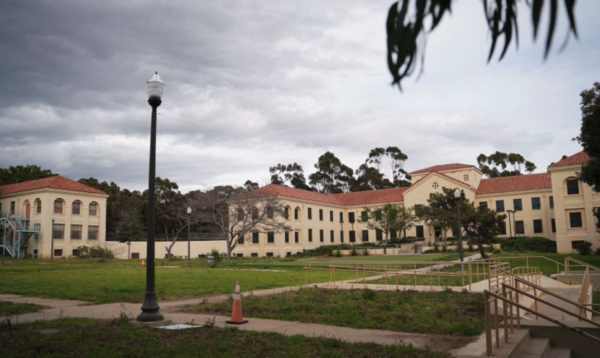
VA housing on the West L.A. campus (Photo: Schelly Stone/The American Legion)
A federal judge has ruled that the VA discriminates against Disabled Veterans through its housing policy on the West Los Angeles campus, as reported by the Los Angeles Times.
The VA outsources housing construction to developers who use tax credit financing, which has income eligibility requirements. This financing considers Veterans’ government compensation as income, making many ineligible for housing. U.S. District Judge David O. Carter declared in a partial summary judgment that this practice “facially discriminates against Veterans based on their disabilities.”
Judge Carter rejected the government’s motion to dismiss the case, noting that the VA has fiduciary duties to Veterans based on an 1888 deed transferring the property to the federal government. He set a trial date for August 6 to address other issues, including the demand for additional housing units and allegations of illegal leasing of campus portions for non-Veteran activities.
Plaintiffs, including Veterans living in a tiny home village on the VA campus, presented evidence that their disability income disqualified them from new housing. Deavin Sessom, a 100% disabled Army Veteran, was denied permanent housing because his combined disability compensation and Social Security benefits exceeded eligibility limits. Judge Carter provided an example of a Veteran receiving $40,000 in benefits being ineligible for housing requiring an income of no more than $25,000, or 30% of the area’s median income.
Mark Rosenbaum of Public Counsel, the plaintiffs’ lead attorney, stressed the ruling’s significance as the VA uses similar practices nationwide. Carter proposed three potential solutions: the VA could build the housing itself, subsidize it to bypass income limits, or exclude disability compensation from income calculations.
During a July 9 hearing, Department of Justice attorneys argued that the VA cannot build housing without congressional approval. The VA has not commented on the ruling. The lawsuit, filed in November, revisits a previous case ending with a 2015 agreement for the VA to build 1,200 housing units on the campus, with over 770 to be completed by the end of 2022. However, only 54 units were completed by the deadline, and by September 2023, just 233 units were available.
Currently, construction is underway on 504 units, with 234 units in pre-development and substantial financing commitments, according to the Veterans Collective, the team contracted by the VA. The Veterans Collective supports legislation to amend the policy from the U.S. Department of Housing and Urban Development that imposes the income limits.
Carter had previously denied the government’s motion to dismiss the case in December and certified it as a class action in May for all homeless disabled Veterans with serious mental illnesses or traumatic brain injuries. The plaintiffs’ motion for summary judgment argued that there was no material dispute about the income rules blocking access for those most in need, stating that excluding fully disabled Veterans is “manifestly unjust.”













I’m a Veteran with Pride who stand for what’s right and unfortunately your good deed doesn’t include other States with contact numbers and options of having correspondence mail,
Physical, electronically and text messages to seek help for not only in California but elsewhere too to assist homeless Veterans.
Whatever it takes to get laws amended so that our disabled veterans are not discriminated against and good housing can be provided for them on that campus. Just tell us where and how to do this change and let’s get going.